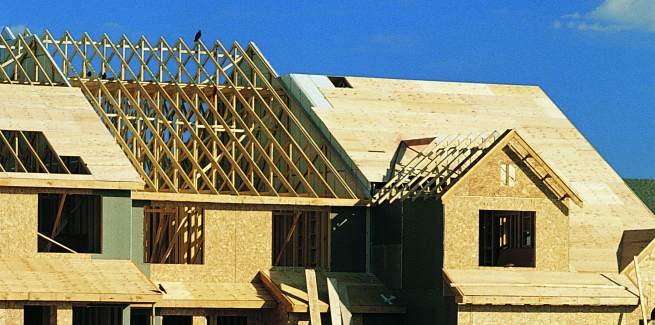The leader of the Australian Greens, Adam Bandt MP and housing spokesperson senator Mehreen Faruqi, yesterday (10 March) announced a plan to build 500,000 new homes, create 40,000 new jobs and 4,000 new apprenticeships, and push back the risk of recession nationally.
Under the plan, 40,000 new public housing homes would be built every year, constructed from sustainable materials and with efficient heating and cooling, and attached solar to bring down power bills.
The Greens outlined that this initiative would be a leading component of the Green New Deal, which aims to solve the climate and economic crises, while creating long-term jobs in futureproof industries.
Noting that construction has fallen 7.4 per cent over the year, and that around a third of young people are said to be struggling to find work, the Greens outlined that such a building project would stimulate the economy and provide more homes for families.
Mr Bandt, leader of the Australian Greens, commented: “With coronavirus and the climate crisis smashing our economy, we’re heading towards a cliff but Scott Morrison is refusing to grab the steering wheel.”
“We’re heading towards a recession and Australia needs a construction-led stimulus that fixes the housing crisis and helps young people find decent jobs.”
He added that “hundreds of thousands of people are on public housing waiting lists or [are] homeless because governments haven’t built new dwellings for years, but now is the right time for the government to fix the problem while keeping us out of recession”.
“Each one of these half a million homes will be built by the next generation of tradies and apprentices, and require materials sourced from businesses around the country. Every single plank, wall, and step will create jobs and put money back into local communities and into Australian’s bank accounts,” Mr Bandt continued.
“Australia would be a very different country without the massive construction programs that pulled us out of the GFC in 2008. With a recession looming, we need to kickstart the economy through investment in services and infrastructure that will improve people’s day-to-day lives.
“There’s never been a better time to do this. With interest rates at a historic low, this is a once-in-a-lifetime opportunity. Australia has wasted enough time waiting for developers to save the day, and it’s time our government got back in the driver’s seat.”
The party’s housing spokesperson, Ms Faruqi, added: “Just like Medicare and our public school system, everyone should have access to housing. By building more publicly owned homes, we can guarantee an affordable, good-quality home to people for life.”
“Half a million new high-quality and sustainable homes will make a huge difference to families around the country.
“No one should be without a home. The Greens plan will make sure there are enough affordable homes for everyone to have a decent and safe place to live.
“With this plan, we can solve the housing crisis, create thousands of construction jobs and build a more equal society all at once. That’s what the Green New Deal is all about.”
The announcement has been welcomed by the national housing and homelessness alliance, Everybody’s Home, whose campaign spokesperson, Kate Colvin, said: “The Greens [has] recognised that – for millions of Australians – the housing crisis isn’t over; almost 200,000 Australian households are on public housing waiting lists, more than 800,000 households are in rent stress and 116,000 Australians are homeless every night in our country,” Ms Colvin said.
“At the same time, the combined fallout from the coronavirus and bushfires means the economy is in serious trouble. Any plan to invest in social housing as an economic stimulus is a win for everyone.
“We know that Australia desperately needs 500,000 more social and affordable homes to make sure everybody in Australia has a safe, secure home.
“It’s going to take national leadership to undo effects of decades of underinvestment by successive governments from all sides of politics.
“Investment in community housing, alongside public housing, would also support the continued growth of Australia’s not-for-profit community sector.”
[Related: Home-building levels shrank drastically in 2019]
